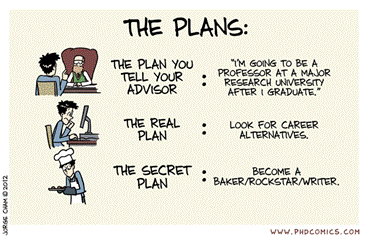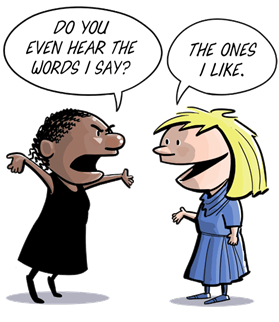This is something different than what I usually do, but given that I’m about to be done with school soon, I should occasionally use this platform to provide some kind of service. This powerpoint is a section of a webinar I created a couple of years back and I think it would be a real help for anyone about to go to college or anyone who knows a future college student.
- Tips for Starting the Search. Most high schools offer some days that students can use to go visit colleges so these days should be taken advantage of.There are also several college fairs that are hosted in the city throughout the year. There are also days that colleges will host groups of students and take them on a tour of the campus. These are great opportunities to gain more information about colleges that you may not get from just looking on the school website.
- College Entrance Exams.Most colleges will accept either the SAT or the ACT, but most schools have a preference between the two. Check with the school to make sure which one they prefer. A good time to take either test is during the fall or spring semester of junior year. If you want to take the test again to get better scores, this gives you enough time to properly study and prepare for another test before college applications are due. Each test also offers fee waivers, so check the requirements of each test to receive a fee waiver. There are differences between the two tests. Generally speaking, the ACT is based more on the curriculum that students learn from in school, while the SAT is more of an aptitude test.
- SAT vs. ACT. There are some important differences between the two. The length is about the same, but the ACT has an optional 30-minute writing test. The SAT has reading, math, and writing sections. The ACT includes English, math, reading, science, and the optional writing section. The scoring scale for the SAT is 600 – 2400 and the scale for the ACT is 1 – 36. For the SAT, 1/4 is deducted for wrong answers, so there is little benefit in guessing. For the ACT, there is no penalty for wrong answers so it is a good idea to guess if you don’t know the answer.
- Preparing for the SAT/ACT.
- The College Board Web Site — Free test preparation materials, excellent resources for finding, selecting, applying to and paying for college
- The ACT website — Free ACT prep materials, good information, and resources for college search and admission process
- Number2.com — Excellent free site for SAT and ACT prep and personalized vocabulary builder
- Test Prep Review.com — Free practice test questions, and subject area self-assessment modules for the SAT, ACT and PSAT
- The Princeton Review — Test prep company offers some free study materials for the PSAT, SAT, Subject Tests and ACT. Click on “Free Practice Tools” section for each test.
- Kaplan — Test prep company provides some free SAT and ACT prep materials including access to free “Quiz Bank,” “Practice Tests” and “Practice Questions”
- Personal Statement. The personal statement is a major part of the college application. It allows the college to more easily identify stand-out students within a large pool of applicants and provides more information about a student than test scores and grades. Personal statements usually fall into two categories: a general and comprehensive personal statement and a personal statement that answers very specific questions.
- Tips for Personal Statements. Here are some tips for writing a good personal statement. Make sure that you answer the questions that are being asked, no matter how well written your statement may, it won’t matter if you do not answer the questions that are asked. Be specific. Whatever claims or statements that are made should be backed up with specific reasons. Telling a story also helps because it provides concrete experiences that can help you to stand out above other applicants. Doing research on the school benefits you because you can explain in more detail why you are applying to the school and what resources provided by the school that you can take advantage of. Avoid cliches, so that means staying away from the types of things that a lot of people say in their personal statement. Include original thoughts. Make sure that there are not any errors. The readers will not be able to focus on your unique experiences if they are too distracted by errors in grammar, spelling, or punctuation. To prevent having any error, have multiple people proofread it. Having multiple people do it helps because one person may catch something that another one didn’t. Finally, statements should be tailored to each college. While there should be a general structure that may apply to different school, the personal statement should fit what the college is explicitly asking for and other things that may grab their attention. So this goes back a to the previous point of doing research on the college.
- Financial Aid. One of the biggest issues facing college students is financial aid. It will help to understand some important terms. The award letter basically tells you what financial aid the college can offer you. Exactly what information is included can differ. So while a school will tell you how much they can offer, they may not tell you the actual cost of attendance. Expected family contribution is what it sounds like, how much the family is expected to contribute to your college education. This is important for filling out the FAFSA, which will be discussed in the next slide. Grants are money that can come from different sources such as the government and the school that do not have to be paid back. Loan have to be paid back federal student loans don’t have to be paid while in college. Scholarships are usually awarded for some type of achievement. Work study or work awards are funds given by the Federal Work Study Program to students for part-time employment to help cover the costs for college.
- FAFSA. The FAFSA or the Free Application for Federal Student Aid determines how much you or family has to contribute to your education. This is the previously mentioned Expected Family Contribution. Expected Family Contribution in turn determines how much you are able to receive in grants, loans, and work-study. There are different application deadlines for each school, so check with the schools to find out their FAFSA deadlines.
- Tips for Parents. Parents also have to be aware of certain things in finding and dealing with financial aid. Understand what the colleges are offering. The distinction between grants and loans is important. Colleges may not differentiate whether they are offering grants, loans, or both. Get up to date information, costs are subject to change without notification so it always a good to keep in contact with what is going on. Apply for financial aid on time. This is very important because paying on time can mean the difference between being registered for all classes and having to sit out a semester or more. Don’t be scared away from the more expensive private colleges. They tend to provide more financial aid because they have the additional resources to do so. The costs could end up being the same as going to a cheaper public college.












